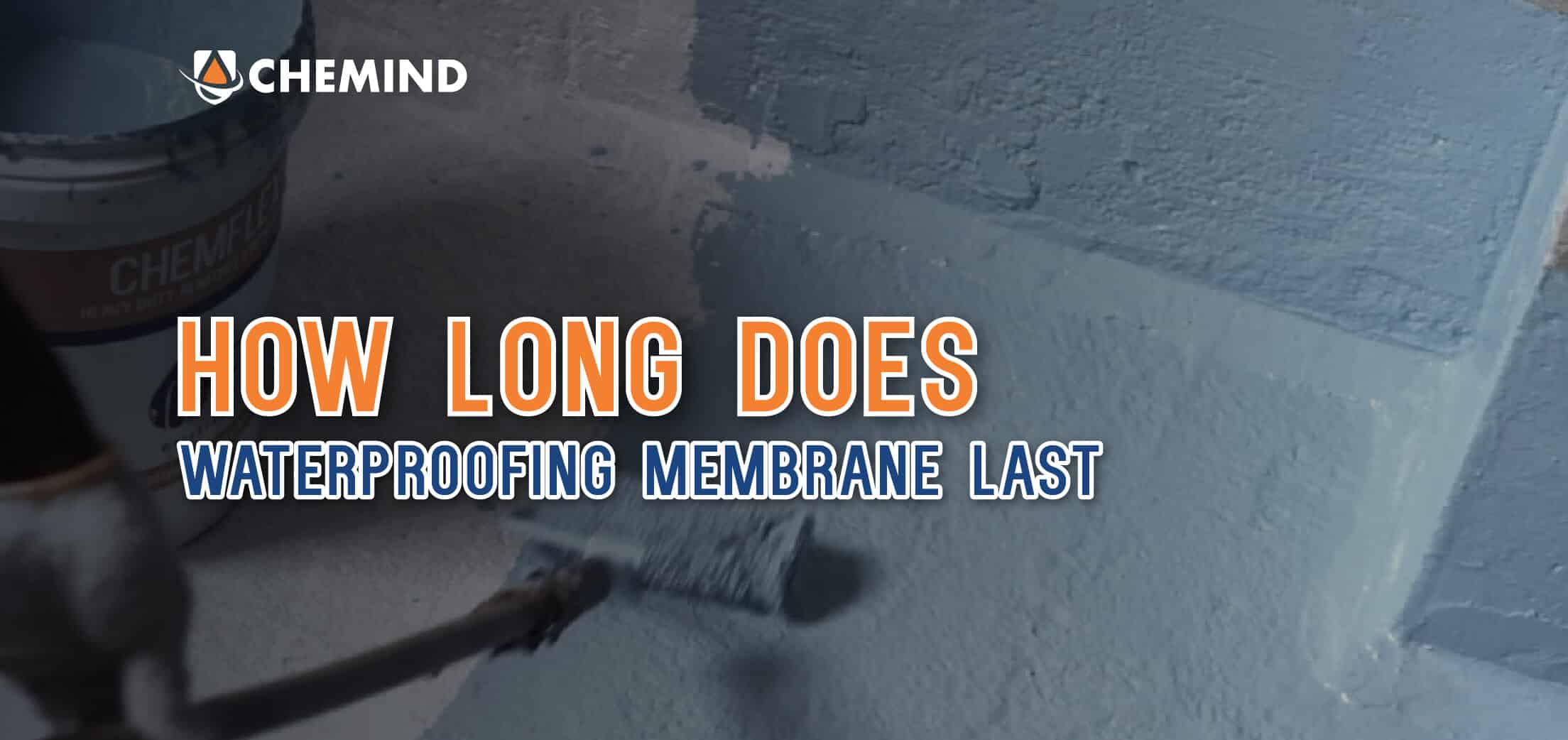How Long Does a Waterproofing Membrane Last?

In the realm of construction and infrastructure development, waterproofing is a critical aspect often overlooked until it becomes a pressing issue. Whether it’s a residential building, commercial complex, or an industrial facility, ensuring protection against water ingress is paramount to maintaining structural integrity and longevity. This is where waterproofing membranes come into play as the unsung heroes of construction.
At Chemind Industries, we understand the significance of waterproofing membranes in safeguarding structures against moisture, thereby preventing costly damages and ensuring longevity. With our commitment to excellence and innovation, we produce top-of-the-line waterproofing membrane products designed to withstand the test of time. But the question remains: how long does a waterproofing membrane truly last?
Understanding Waterproofing Membranes:
Before delving into the lifespan of waterproofing membranes, it’s crucial to comprehend their composition and function. Waterproofing membranes are thin layers of material applied to surfaces to prevent water penetration. They act as a barrier, protecting structures from moisture ingress and the associated damages such as mold growth, corrosion, and deterioration of building materials.
These membranes are commonly made from various materials including bitumen, PVC (polyvinyl chloride), EPDM (ethylene propylene diene monomer), TPO (thermoplastic olefin), and modified asphalt, each offering specific advantages depending on the application and environmental conditions.
Factors Influencing Lifespan:
The longevity of a waterproofing membrane depends on several factors, including:
- Material Quality: The quality of the membrane material plays a significant role in determining its lifespan. High-quality materials are more durable and resistant to degradation over time.
- Installation: Proper installation is crucial for the effectiveness and longevity of waterproofing membranes. Improper installation can lead to premature failure and reduce the expected lifespan.
- Environmental Conditions: The climate and environmental factors such as temperature fluctuations, UV exposure, and chemical exposure can impact the durability of waterproofing membranes.
- Maintenance: Regular inspection and maintenance can extend the lifespan of waterproofing membranes by identifying and addressing issues early on, before they escalate into larger problems.
Expected Lifespan:
While the lifespan of waterproofing membranes can vary depending on the factors mentioned above, a well-installed and properly maintained membrane can typically last anywhere from 10 to 50 years. Bitumen-based membranes tend to have a longer lifespan, often lasting 20 years or more, while synthetic membranes like PVC and TPO can last between 15 to 30 years.
It’s important to note that these are general estimates, and actual lifespan may vary based on specific circumstances. Additionally, factors such as building movement, seismic activity, and exposure to harsh chemicals can affect the durability of waterproofing membranes.
Chemind Industries: Ensuring Longevity and Reliability
At Chemind Industries, we take pride in our commitment to delivering high-quality waterproofing membrane products that offer exceptional durability and reliability. Our membranes undergo rigorous testing to ensure they meet industry standards for performance and longevity.
Moreover, our team of experts provides comprehensive support, from product selection to installation guidance, to ensure optimal performance and longevity of our waterproofing solutions. We understand that each project is unique, and we tailor our products and services to meet the specific needs and challenges of our clients.
Other popular post you might be interested
- 5 tips to waterproofing toilet and bathroom
- How to Prevent Water Damage to Your Home with an Effective Waterproofing System
- The guide to Waterproofing Membrane
- How to waterproof your bathroom and toilet with CHEMFLEX R100
- Benefits and disadvantages of waterproofing sheet system
- Water leaking in condominium apartment from upstairs. Who should repair?
- MEASAT Global RC Rooftop waterproofing works
- Benefits and Disadvantages of Liquid Waterproofing System
- Advantages and Disadvantages of Polyurethane (PU) Liquid Waterproofing
- House Waterproofing Contractor Guide for Malaysia Home – Type of Waterproofing
